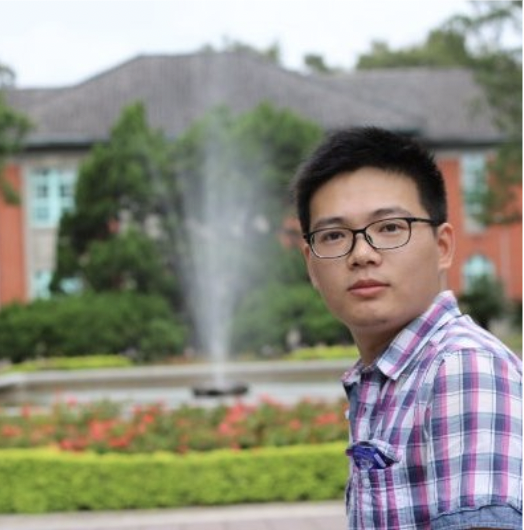Time (Seattle) | Time (China) | Event | Title / Presenter |
13:30 - 14:15 | 04:30 - 05:15 | Opening Remarks and Intro to NAS | Workshop organizers |
14:15 - 15:00 | 05:15 - 06:00 | Keynote Talk:Zero-Shot Neural Architecture Search: Challenges, Solutions, and Opportunities | |
15:00 - 15:50 | 06:00 - 06:50 | Poster Session Break | |
| 15:50 - 16:05 | 06:50 - 07:05 | Proceeding #1 The devil is in discretization discrepancy. Robustifying Differentiable NAS with Single-Stage Searching Protocol Konstanty Subbotko, Wojciech Jablonski, Piotr Bilinski | |
| 16:05 - 16:20 | 07:05 - 07:20 | Proceeding #2 CycleGANAS: Differentiable Neural Architecture Search for CycleGAN Taegun An, Changhee Joo | |
| 16:20 - 16:35 | 07:20 - 07:35 | Proceeding #3 GRASP-GCN: Graph-Shape Prioritization for Neural Architecture Search under Distribution Shifts Sofia Casarin, Oswald Lanz, Sergio Escalera | |
| 16:35 - 16:50 | 07:35 - 07:50 | Proceeding #4 UP-NAS: Unified Proxy for Neural Architecture Search Yi-Chen Huang, Wei-Hua Li, Chih-Han Tsou, Jun-Cheng Chen, Chu-Song Chen | |
| 16:50 - 17:05 | 07:50 - 08:05 | Proceeding #5 CSCO: Connectivity Search of Convolutional Operators Tunhou Zhang, Shiyu-Li, Hsin-Pai Cheng, Feng Yan, Hai Li, Yiran Chen | |
| 17:05 - 17:20 | 08:05 - 08:20 | Proceeding #6 QuantNAS: Quantization-aware Neural Architecture Search For Efficient Deployment On Mobile Device Tianxiao Gao, Li Guo, Shanwei Zhao, Yukun Yang, Xionghao Liu, Shihao wang, Shiai Zhu, Dajiang Zhou | |
| 17:20 - 17:30 | 08:20 - 08:30 | Closing Remarks | Workshop organizers |

Title: Should we be searching over Generative Neural Architectures
Abstract:There has been impressive recent progress in unsupervised learning of Deep Nets and Neural Architectures. In particular, we now have the ability to learn feature vector representations which can exploit the enormous amount of unannotated data. But is this enough to overcome the limitations of Deep Nets compared to the human visual system? Namely their task specific and domain specific nature and their difficulty at extending to out-of-distribution data and to tasks they have not been trained to perform? We argue that generative models suggest a promising mathematical strategy for overcoming these limitations which differs from discriminative methods like Deep Nets and give examples of good performance on out-of-distribution data and tasks that the algorithms were not trained on.
Speak Profile:Alan Yullie is a Bloomberg Distinguished Professor of Cognitive Science and Computer Science at Johns Hopkins University. He directs the research group on Compositional Cognition, Vision, and Learning. He is affiliated with the Center for Brains, Minds and Machines, and the NSF Expedition in Computing, Visual Cortex On Silicon. Alan Yuille received the BA degree in mathematics from the University of Cambridge in 1976. His PhD on theoretical physics, supervised by Prof. S.W. Hawking, was approved in 1981. He was a research scientist in the Artificial Intelligence Laboratory at MIT and the Division of Applied Sciences at Harvard University from 1982 to 1988. He served as an assistant and associate professor at Harvard until 1996. He was a senior research scientist at the Smith-Kettlewell Eye Research Institute from 1996 to 2002. He was a full professor of Statistics at the University of California, Los Angeles, as a full professor with joint appointments in computer science, psychiatry, and psychology. He moved to Johns Hopkins University in January 2016. His research interests include computational models of vision, mathematical models of cognition, medical image analysis, and artificial intelligence and neural networks.
He directs the research group on Compositional Cognition, Vision, and Learning. He is affiliated with the Center for Brains,
Minds and Machines, and the NSF Expedition in Computing, Visual Cortex On Silicon. Alan Yuille received the BA degree in
mathematics from the University of Cambridge in 1976. His PhD on theoretical physics, supervised by Prof. S.W. Hawking,
was approved in 1981. He was a research scientist in the Artificial Intelligence Laboratory at MIT and the Division of Applied
Sciences at Harvard University from 1982 to 1988. He served as an assistant and associate professor at Harvard until 1996.
He was a senior research scientist at the Smith-Kettlewell Eye Research Institute from 1996 to 2002. He was a full professor
of Statistics at the University of California, Los Angeles, as a full professor with joint appointments in computer science,
psychiatry, and psychology. He moved to Johns Hopkins University in January 2016. His research interests include computational
models of vision, mathematical models of cognition, medical image analysis, and artificial intelligence and neural networks.
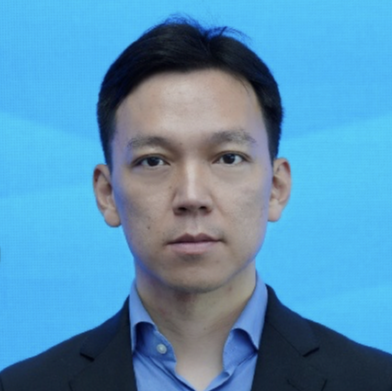
Title: Neural Architecture Search
Abstract: Deep neural networks have achieved extraordinary success in recent years. However, finding appropriate network architectures still involves extensive human efforts and experience. As an alternative, NAS was recently proposed to automatically discover suitable networks by searching over a vast architecture space. It has rapidly become a research hotspot and achieved cutting-edge performance in various computer vision tasks, ranging from image classification, segmentation to detection. Aiming at the effectiveness and efficiency of neural architecture search, this talk briefly introduces the existing NAS methods and covers some of the recent work and achievements of Professor Rongrong Ji’s research group.
Speak Profile:Rongrong Ji is a distinguished professor at Xiamen University, a recipient of the National Natural Science Fund for Distinguished Young Scholars. His research falls in the field of computer vision, multimedia analysis, and machine learning. He has published 100+ papers in ACM/IEEE Transactions, including TPAMI and IJCV, as well as top-tier international conferences, such as CVPR and NeurIPS. His publications have got over 10K citations in Google Scholar. He was the recipient of the first prize of technology invention of the ministry of education in 2016, the first prize of the Fujian provincial science and technology award in 2018, science and technology award for youth of Fujian province in 2019. He has served as the area chair of top-tier international conferences such as IEEE CVPR and ACM Multimedia. He is also the Vice Director of Academic Working Committee of Chinese Society of Image and Graphics, and a member of the Artificial Intelligence Professional Construction Advisory Committee of the Electronic Information Education Commission of the Ministry of Education.
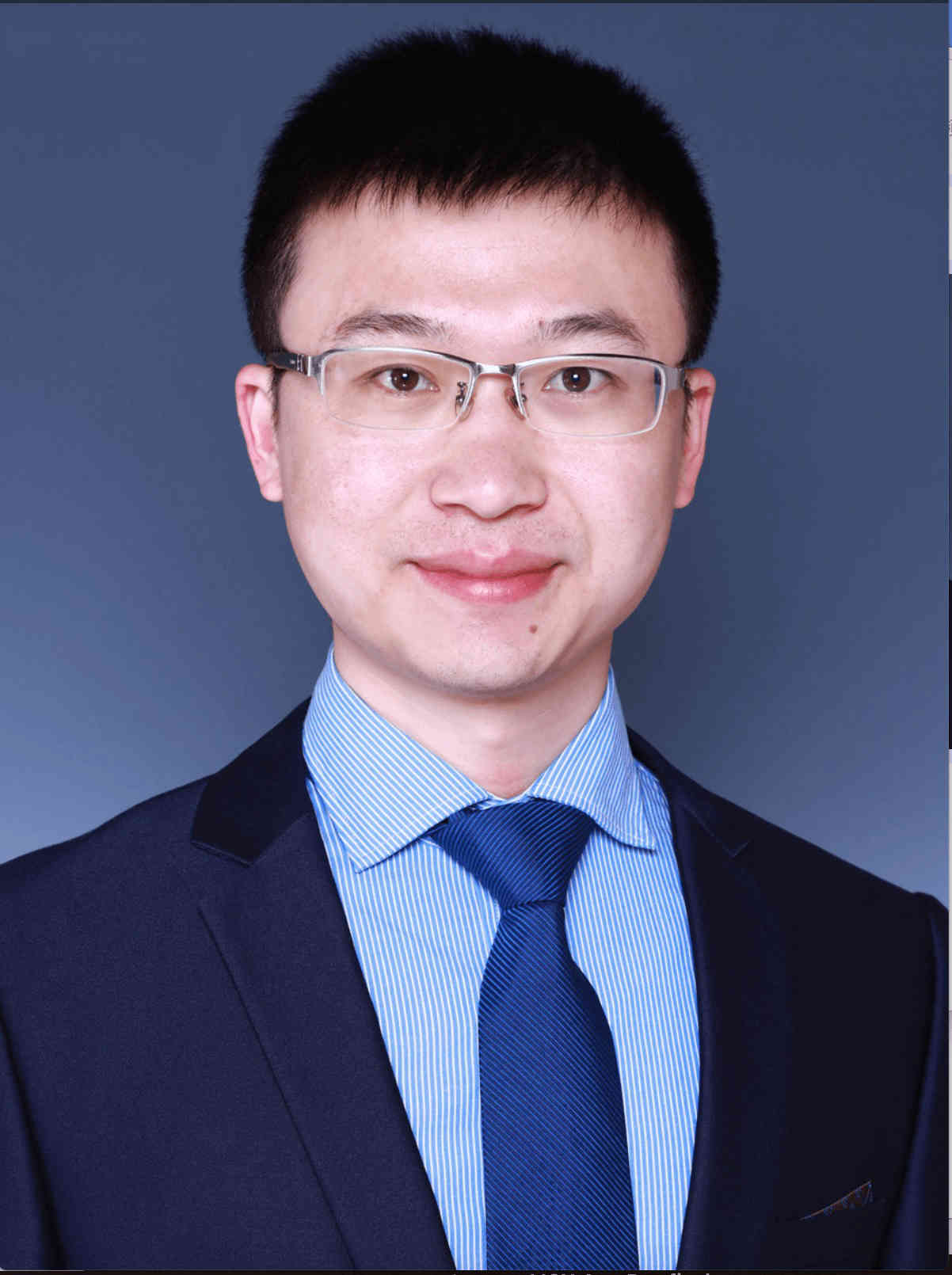
Title: Dynamic Neural Networks
Abstract: In recent years, network architecture innovations are pushing forward the application of deep learning in various areas. This talk will introduce the paradigm that improves the inference efficiency of deep networks with dynamic architectures. Compared to the mainstream CNN backbones with static components, dynamic models can change its depth/width/parameters at the inference stage, conditioned on each input sample, thus leading to substantially improved computational efficiency. The advantages of dynamic models and possible future directions will be discussed.
Speak Profile:Gao Huang is an Assistant Professor in the Department of Automation at Tsinghua University. Previously, he was apostdoc researcher in the Department of Computer Science at Cornell University from 2015 to 2018. His researchinterests lie in machine learning and computer vision, especially deep learning. He has authored about 50 papers ontop-tier journals and conferences (PAMI, CVPR, ICCV, ECCV, NeurIPS, ICML, ICLR, etc.), which collect more than 16,000 citations. He is a recipient of the CVPR Best Paper Award, for the invention of DenseNet.
Gao Huang is an Assistant Professor in the Department of Automation at Tsinghua University. Previously, he was apostdoc
researcher in the Department of Computer Science at Cornell University from 2015 to 2018. His researchinterests lie in
machine learning and computer vision, especially deep learning. He has authored about 50 papers ontop-tier journals and
conferences (PAMI, CVPR, ICCV, ECCV, NeurIPS, ICML, ICLR, etc.), which collect more than 16,000 citations. He is a recipient
of the CVPR Best Paper Award, for the invention of DenseNet.
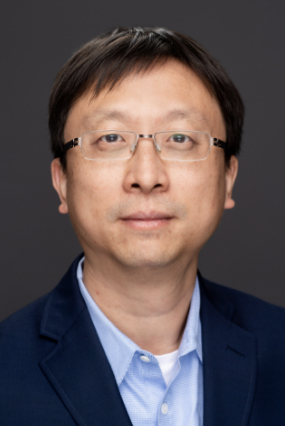
Title: Deep (Convolution) Networks from First Principles
Abstract: In this talk, we offer an entirely “white box’’ interpretation of deep (convolution) networks from the perspective of data compression (and group invariance). In particular, we show how modern deep layered architectures, linear (convolution) operators and nonlinear activations, and even all parameters can be derived from the principle of maximizing rate reduction (with group invariance). All layers, operators, and parameters of the network are explicitly constructed via forward propagation, instead of learned via back propagation. All components of so-obtained network, called ReduNet, have precise optimization, geometric, and statistical interpretation. There are also several nice surprises from this principled approach: it reveals a fundamental tradeoff between invariance and sparsity for class separability; it reveals a fundamental connection between deep networks and Fourier transform for group invariance – the computational advantage in the spectral domain (why spiking neurons?); this approach also clarifies the mathematical role of forward propagation (optimization) and backward propagation (variation). In particular, the so-obtained ReduNet is amenable to fine-tuning via both forward and backward (stochastic) propagation, both for optimizing the same objective. This is joint work with students Yaodong Yu, Ryan Chan, Haozhi Qi of Berkeley, Dr. Chong You now at Google Research, and Professor John Wright of Columbia University.
Speak Profile:Yi Ma received the first prize of Excellent Student Scholarship from Tsinghua University in 1994 and the Regents Fellowship from U.C. Berkeley from 1995 to 1996. His PhD research won the David Marr Best Paper Award with S. Soatto, J. Kosecka, and S. Sastry, at the International Conference on Computer Vision (ICCV) in 1999. He also received honorable mention for the Longuet-Higgins Best Paper Award with R. Vidal at the European Conference on Computer Vision (ECCV) in 2004, the Sang Uk Lee Best Student Paper Award with his students Shankar Rao, Hossein Mobahi, and Allen Yang at the Asian Conference on Computer Vision (ACCV) in 2009, and the second prize of the Best Paper Award of the IMA Journal on Information and Inference in 2015. Yi Ma was the recipient of the Faculty Early Career Development (CAREER) Award from the National Science Foundation(NSF) in 2003. He was also the recipient of the Young Investigator Program (YIP) Award from the Office of Naval Research (ONR) in 2005. He received the Gold Star Award from Microsoft Corporate in 2009 and the Best Research Team of the Year Award from Microsoft Research Asia in 2012. He has given over two dozens of Plenary Talks at international conferences and workshops. He was on the Incomplete List of Teachers Ranked as Excellent of the University of Illinois for Spring'01, Fall'02, and Spring'06. Yi Ma is an IEEE Fellow since 2013, an ACM Fellow since 2017, and a SIAM Fellow since 2020. He is ranked the World's Highly Cited Researchers since 2016 by Clarivate Analytics of Thomson Reuters and ranked Top 50 of the World's Most Influential Authors in Computer Science by Semantic Scholar, reported by Science Magazine in April 2016.
Yi Ma received the first prize of Excellent Student Scholarship from Tsinghua University in 1994 and the Regents Fellowship from
U.C. Berkeley from 1995 to 1996. His PhD research won the David Marr Best Paper Award with S. Soatto, J. Kosecka, and S. Sastry,
at the International Conference on Computer Vision (ICCV) in 1999. He also received honorable mention for the Longuet-Higgins
Best Paper Award with R. Vidal at the European Conference on Computer Vision (ECCV) in 2004, the Sang Uk Lee Best Student
Paper Award with his students Shankar Rao, Hossein Mobahi, and Allen Yang at the Asian Conference on Computer Vision (ACCV)
in 2009, and the second prize of the Best Paper Award of the IMA Journal on Information and Inference in 2015. Yi Ma was the
recipient of the Faculty Early Career Development (CAREER) Award from the National Science Foundation(NSF) in 2003. He was
also the recipient of the Young Investigator Program (YIP) Award from the Office of Naval Research (ONR) in 2005. He received
the Gold Star Award from Microsoft Corporate in 2009 and the Best Research Team of the Year Award from Microsoft Research
Asia in 2012. He has given over two dozens of Plenary Talks at international conferences and workshops. He was on the Incomplete
List of Teachers Ranked as Excellent of the University of Illinois for Spring'01, Fall'02, and Spring'06. Yi Ma is an IEEE Fellow since
2013, an ACM Fellow since 2017, and a SIAM Fellow since 2020. He is ranked the World's Highly Cited Researchers since 2016 by
Clarivate Analytics of Thomson Reuters and ranked Top 50 of the World's Most Influential Authors in Computer Science by
Semantic Scholar, reported by Science Magazine in April 2016.

Title: Learning 3D environment representations through intelligent anticipation
Abstract: Embodied agents operating in unfamiliar indoor environments must explore efficiently and build useful representations of the environment. We introduce the idea of predicting unobserved content in 3D spaces to (1) learn agents that build maps efficiently and (2) learn transferrable representations that benefit several downstream navigational tasks. First, we propose the idea of occupancy anticipation, where we infer spatial occupancy for unobserved regions to map unfamiliar environments rapidly. For example, we can predict whether there is a corridor outside the room and whether there is floor space behind the bed. Embodied agents equipped with the ability to anticipate occupancy build 30% more accurate maps when compared to prior work, and navigate more efficiently in the challenging Gibson and Matterport3D datasets. Our approach won the 2020 Habitat PointNav Challenge. Next, we propose the self-supervised approach of environment predictive coding to learn effective representations of observation sequences gathered by an embodied agent. We learn these representations on video walkthroughs generated by other agents, and transfer the representations to various geometric and semantic navigation tasks. Our approach improves the learning efficiency of embodied agents by a 2-4x compared to methods that only learn image-level representations, and leads to better navigation performance.
Speak Profile:Kristen Grauman is a Full Professor in the Department of Computer Science at the University of Texas at Austin where she leads the UT Computer Vision Group. Her research is in computer vision and machine learning. She is a Fellow of AAAI, an Alfred P. Sloan Research Fellow, and a recipient of the Presidential Early Career Award for Scientists and Engineers, the 2013 Computers and Thought Award, and several best paper awards. Prof. Grauman serves as Associate Editor-in-Chief for the IEEE Transactions on Pattern Analysis and Machine Intelligence. She was elected to the Academy of Distinguished Teachers in 2017, and received her B.A. from Boston College and her Ph.D. from MIT. Within computer vision and machine learning, Prof. Grauman's primary interests are visual recognition, image and video search, video analysis, first-person vision, embodied and multi-modal perception, and interactive machine learning.
leads the UT Computer Vision Group. Her research is in computer vision and machine learning. She is a Fellow of AAAI, an
Alfred P. Sloan Research Fellow, and a recipient of the Presidential Early Career Award for Scientists and Engineers, the 2013
Computers and Thought Award, and several best paper awards. Prof. Grauman serves as Associate Editor-in-Chief for the
IEEE Transactions on Pattern Analysis and Machine Intelligence. She was elected to the Academy of Distinguished Teachers
in 2017, and received her B.A. from Boston College and her Ph.D. from MIT. Within computer vision and machine learning,
Prof. Grauman's primary interests are visual recognition, image and video search, video analysis, first-person vision, embodied
and multi-modal perception, and interactive machine learning.
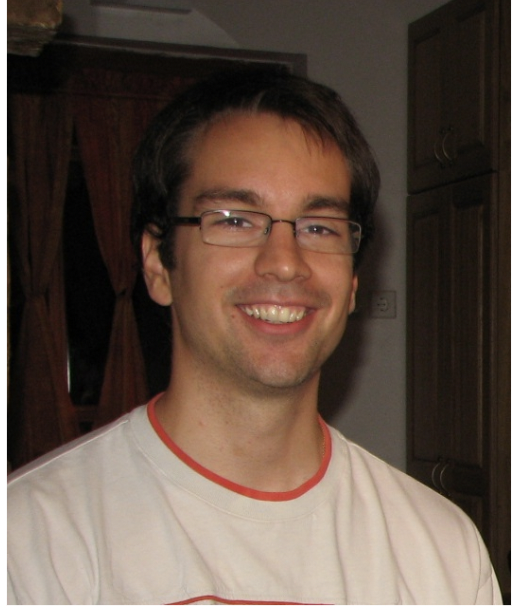
Title: Automated Architecture and Training Recipie Search of Computationally Efficient Deep Neural Networks
Speak Profile:Peter Vajda is Research Scientist Manager at Facebook. He is leading the effort for Mobile Vision team on Efficient Deep learning for Computer Vision. From 2012-2014, he was a Visiting Assistant Professor in Professor Bernd Girod's group in Stanford University, Stanford, USA. From September 2007 to January 2012, he was research assistant andPh.D. student in Professor Ebrahimi's group in Ecole Polytechnique Fédéral de Lausanne (EPFL), Lausanne,Switzerland.
Peter Vajda is Research Scientist Manager at Facebook. He is leading the effort for Mobile Vision team on Efficient Deep
learning for Computer Vision. From 2012-2014, he was a Visiting Assistant Professor in Professor Bernd Girod's group in
Stanford University, Stanford, USA. From September 2007 to January 2012, he was research assistant andPh.D. student in
Professor Ebrahimi's group in Ecole Polytechnique Fédéral de Lausanne (EPFL), Lausanne,Switzerland.
